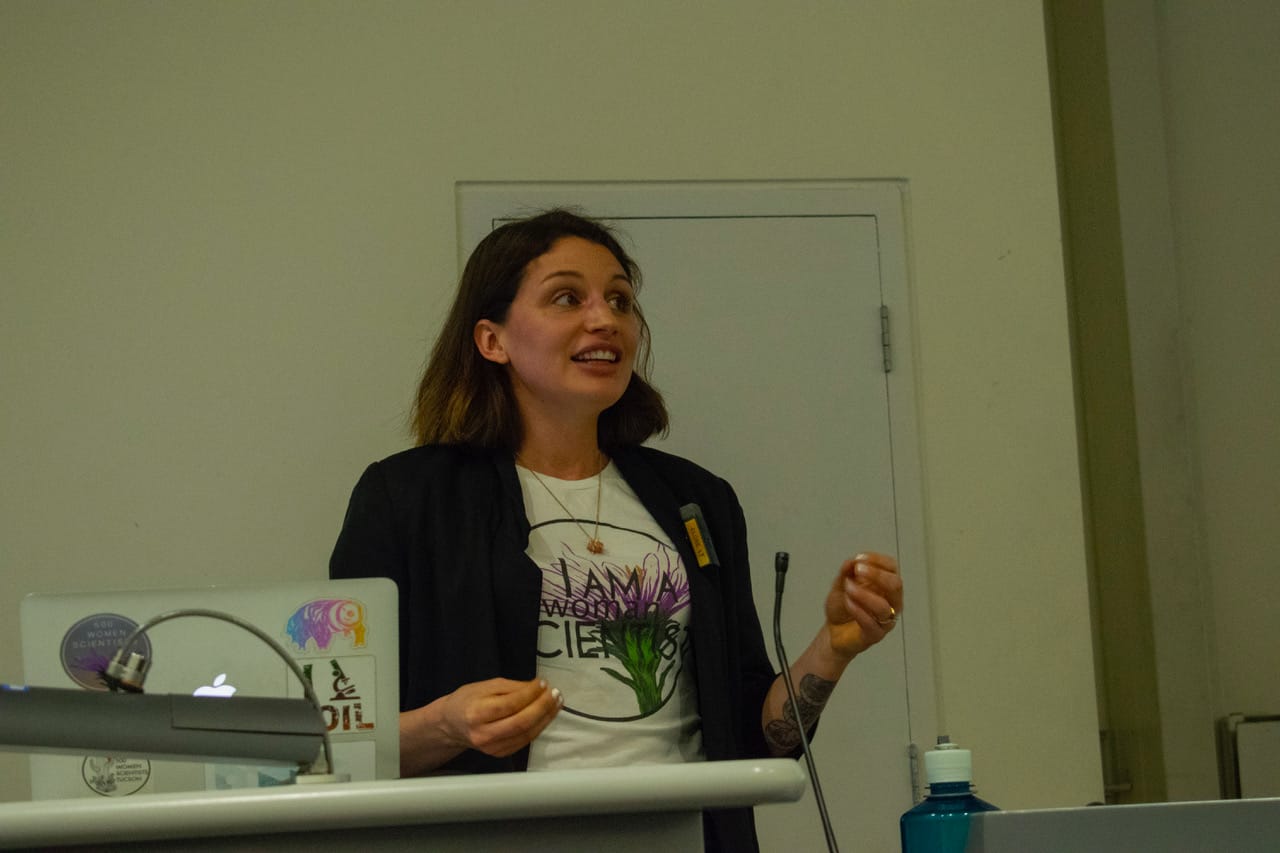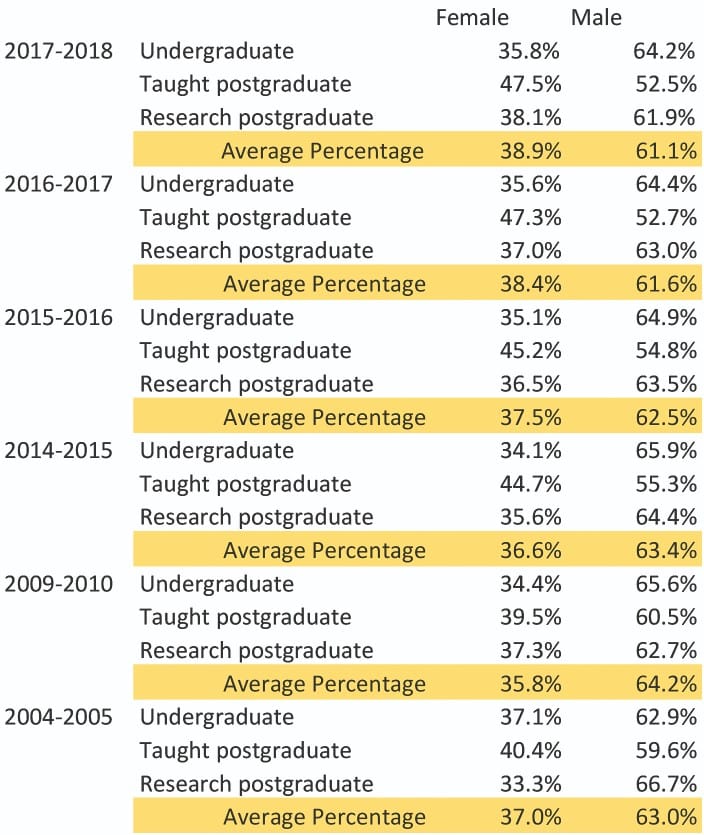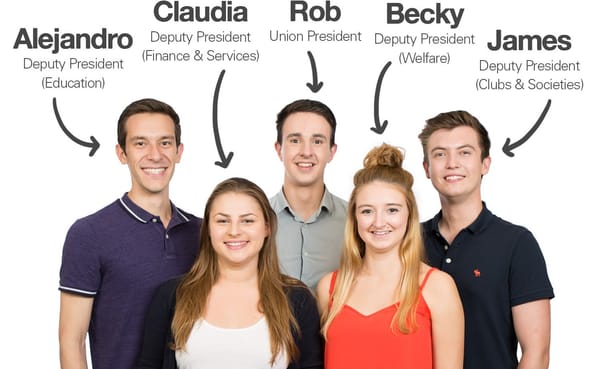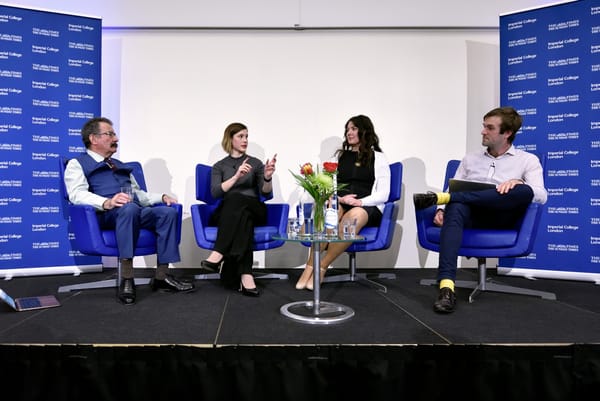500 Women Scientists
In light of International Women's Day, Felix caught up with Dr. Kelly Ramirez and Dr. Jess Wade to discuss the issues facing women in STEM

On Wednesday, 27th February, Dr. Kelly Ramirez visited Imperial College London to give a talk on “Transforming scientific institutions through crowdsourcing and gritty determination”. The theme of the discussion was “empowering women scientists through public engagement and advocation”.
In late 2016, after the huge upset of Hillary Clinton’s failed presidential run, Kelly and three graduate school friends decided to create a grassroots organisation committed to championing minorities – women, immigrants, disabled, LGBTQ+ - in the field of science. Their first action after the November elections was to publish an open letter reaffirming this commitment, with the aim of getting 500 signatures. Within 4 days, they far surpassed this to reach 5,000 and, by January, reached 20,000. The name of their organisation, “500 Women Scientists”, memorialises the 500 signatures target that at first seemed aspirational, but is now a constant reminder of their success. Today, this letter is found as a pledge on their website translated to 9 other languages.
Kelly explained the “leaky pipe” metaphor as a key issue tackled by 500 Women Scientists. The metaphor illustrates the “leaking” of women from the scientific talent pipeline, starting from high school science classes (49% women) to bachelor’s degrees (32%) to PhDs (25%) to top academic positions (only 11%).
This is due to the “institutional discrimination” within science, where the structural system for advancing one’s scientific career is built for only one kind of person: a cis white male. These discriminations take shape in the form of unequal pay for equal work, inadequate family leave policies, and workplace harassment. These factors build upon each other to pressure women to leave the field earlier.
Through 500 Women Scientists (500WS), Kelly and Co-founder Jane Zelikova implement solutions to institutional discrimination, although the full scope of the organisation’s work is much broader and has expanded beyond its original parameters. Kelly explains, “we quickly evolved from our reactionary beginnings towards a broader mission to serve society by making science more open, inclusive, and accessible.”
500WS provides resources to its local chapters, endearingly named “pods”, such as ones addressing “get out the vote” initiatives, public policy, ending workplace harassment, and science communication. They catalyse change by providing training, mentorships, and public outreach opportunities to members; they actively try to promote women into positions of power and leadership, to become award winners or society presidents and more; they aim to make science accessible to everyone through events organised by local pods to bring science to the community, such as family night science camps. It is through these approaches, through crowdsourcing and gritty determination, that they want to transform scientific institutions.
Felix sat down with Kelly and Imperial Department of Physics research associate Dr. Jessica Wade, who is also known for her advocacy for women scientists. Jess writes biographies on Wikipedia of impressive women scientists whose work have not been celebrated or recognized enough. Dr. Shini Somara, host of the Scilence podcast, that interviews women in STEM about the challenges of being a woman in STEM, also joined the discussion.

Felix: Has your organization faced any backlash or resistance, or come across people who strongly disagree with your mission?
Kelly: Yes. We are women speaking out and any woman who speaks loud enough will get backlash. Mostly from emails or Twitter. The benefit of our organisation is that we do it behind the 500 Women Scientists wall. For a lot of the stuff we do, we sign it as 500 Women Scientists so there’s not an individual.
Jess: After I called someone out last year for being a horrible sexist, because he was, I got a bunch of emails for about a month every day, and also handwritten letters sent in these funny envelopes to me at Imperial. Quite a few very right-wing websites took against me and directed their hundreds of thousands of horrible people towards me as well.
Kelly: We did an AMA [Ask Me Anything] on Reddit. Horrible. The moderators running it, under the science subreddit, were unprepared for how many nasty comments there would be and they had to bring in way more moderators than they ever had to with any other science AMA. It was horrific.
Jess: You’ll always get haters, that’s fine, I don’t care. If they liked me, I’d be worried. That’s generally had to be my approach to it. The backlashes that upset you more are the ones where, professionally, people may not take you as seriously because you care about this kind of stuff.
How does someone who is being sexually harassed, or someone who feels discriminated against because they’re a woman, speak up in the workplace?
Kelly: It’s really hard. Some institutions are going to be better about it than others. If you’re lucky, you’ll have a supervisor that you can go talk to and share your experience with, and who will be there to support you through the process.
Jess: I think that’s the tricky thing, that the majority of places, take the UK, don’t have any policy to protect people who are suffering this.
When I came in, I noticed a lack of men in the room. I think there was only 1, maybe 2 [the crowd ratio was 1 male to 15 females]. How do you affect real change, if you are having these conversations but only women are there, and women already know the problems?
Kelly: I don’t think all women already know the problems. I think some women know, the majority probably “feel like something’s off”. I think that’s true for a lot of women, especially younger women. There are women who are just completely unaware and they’re probably in a very nice position of privilege, so they haven’t been confronted with a challenge, so why would they know?
Jess: I think there are really great men, especially at Imperial, who are really championing the cause. I think Stephen Curry’s position [Assistant Provost (Equality, Diversity, Inclusion)] is so, so, so important. I do think men have to be involved, and it’s very similar to the kind of conversation about the lack of minority ethnic academics, right? It can’t only be on the few black professors already there to speak up; it can’t be up to them to fix that for all of the other black students coming through, you have to have other people doing it.

20 years ago, there were 5% of the professors at Imperial were women. That rose to 15% in 2009. Since 2009, it’s only increased by 1%, so it’s going a step in the right direction but the pace of change is extremely, extremely slow.
Jess: I think it’s departmental. You have departments like Medicine with 50-50 men and women and that’s because people take it really seriously. The Athena Swan Award is great because it was pretty terrible before for women academics. It makes people collect data and to try and initiate practices to better support underrepresented communities and that’s always a good thing. You can’t get funding in Medical sciences unless you have at least the Athena Swan Silver, that’s had a really, really big impact and that’s why you have 50-50.
Do you know the gender ratio of students at Imperial?
Jess: Physics is about 20-25%. Really interestingly, Physics A-Level is 20-25% girls and Physics at university is 20-25% girls, so the girls who do Physics A Level are the only ones doing it at university. No-one does it as just a “hey cool, the universe is fun, I’m going to do it as a side project”, and that’s really sad.
Kelly: That just highlights that each different discipline has a different challenge. In my field, biology and ecology, through undergrad and grad it's 50-50, but there’s just a huge drop-off for postdocs and then for professors, whereas Physics already starts with a drop-off.
Jess: I think we really need to get better at how we talk about it. Women leaving isn’t because they are leaving and failing, it’s because every single job in the whole world wants to employ academic women scientists. When you finish your degree here you can choose to do a PhD if you want, but consultancy will want you, investment banks will want you, policy will want you, people will beg for you to teach. There are so many different career options that you can do and you can go into one where you’re not going to be subjected to sexism or isolation all the time.









